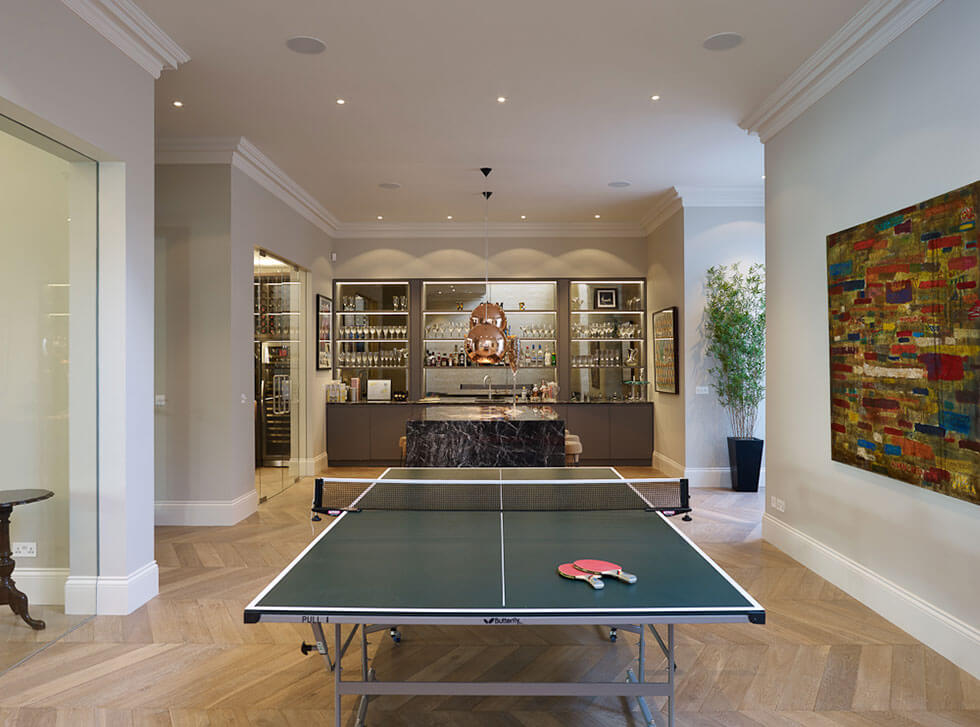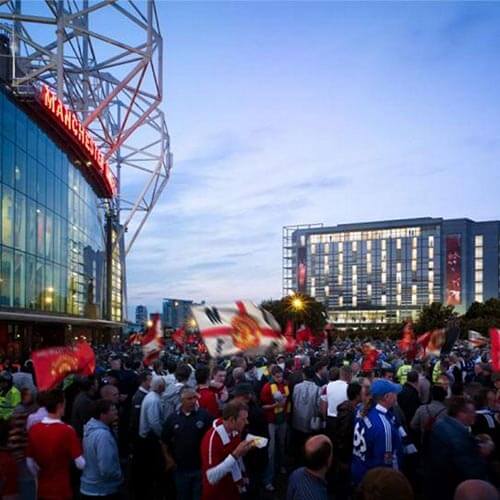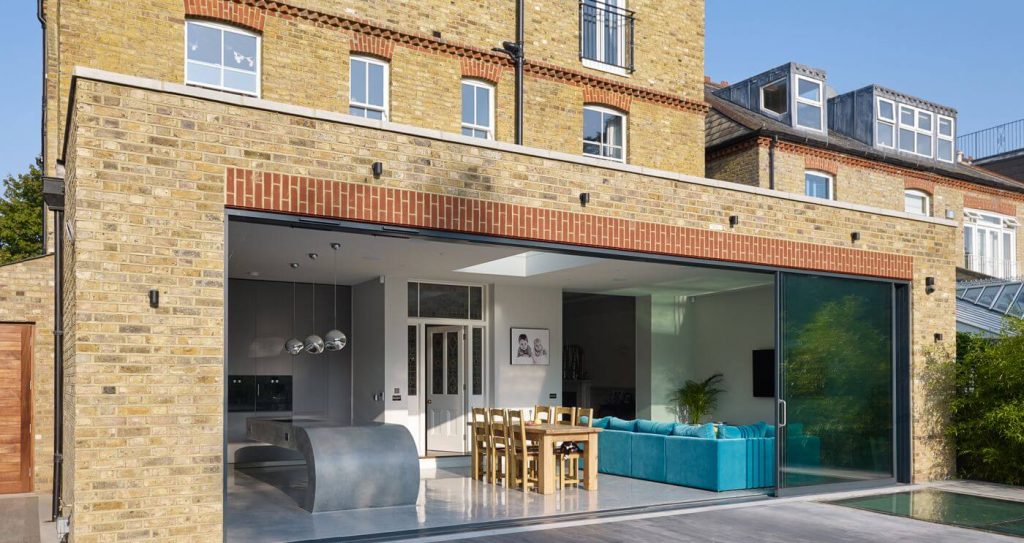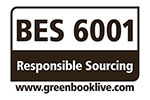01732 360 095
Waterproofing is a critical aspect of construction and infrastructure development – whether you are building a home, a commercial property or an industrial facility, protecting below-ground elements of the structure from water infiltration is paramount.
Type A (barrier) waterproofing membranes can be applied both internally and externally to the structure. The major difference are that
- Externally applied membranes are installed to the positive-pressure side, with the groundwater pressure pushing the membrane against the building
- Whereas internally applied barriers are placed to the negative pressure side and must therefore grip to the structure with at least as much force as the ground water pressure they are resisting.
Because of this high-performance requirement, internally applied membranes are generally cement-based slurries, whereas those that are applied externally are mainly bitumen-based and can be in either sheet or liquid form.
What Are Liquid Waterproofing Membranes?
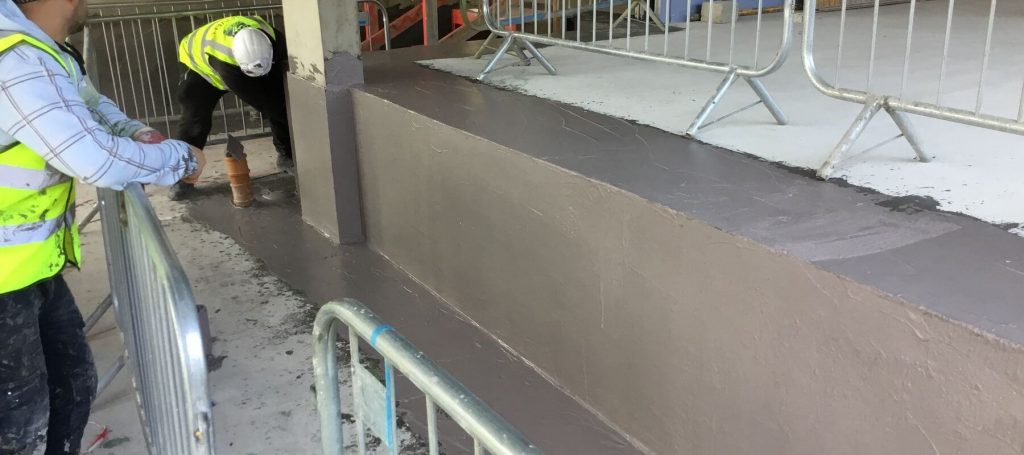
Liquid waterproofing membranes are a type of coating that is applied directly to the surfaces of the earth-retaining structure to create a waterproof barrier that will resist the pressure created by groundwater attempting to enter the building.
Ideally the membranes will form a continuous and seamless barrier to prevent water from penetrating into the structure and the internal space. The product chosen will be dependent on several performance requirements as well as the substrate it is to be applied to; elastic products are used where movement is expected, and harder products are used where more grip is required or where the waterproofing will be exposed to chemical or wearing agents.
Application can be by spray machine, roller, brush or trowel depending on the consistency of the product.
When Should You Use Liquid Waterproofing Membranes?
Internally there is no option – the Type A barrier will always be a liquid slurry or mortar.
Externally, the choice to use a sheet membrane or a liquid membrane will be dependent on a number of factors, including:
- The complexity of the structure – liquid membranes are much easier to detail to complex building geometry
- The size of the area to be waterproofed – liquid membranes can often be sprayed, covering large areas in a day
- Whether the membrane will be exposed to aggressive chemicals in the ground
- Ground gas resistance – where this is required, a sheet membrane will always be needed
- Temperature – sheet membranes can be used in lower temperatures and where rain is forecast, as they are raintight much quicker than liquid membranes
Correct preparation of the substrate is crucial to the success of the waterproofing, especially with internally applied membranes due to the very high grip required to bond to the substrate. The main causes of failures in liquid-applied waterproofing systems are:
- Poor preparation
- Incorrect application
- Selection of the wrong type of product for the task
When such a failure occurs, the entire Type A waterproofing system can be compromised, allowing water to penetrate and compromise the internal space.
What Liquid Waterproofing Membranes Are Available from Newton Waterproofing?
Internally Applied Membranes
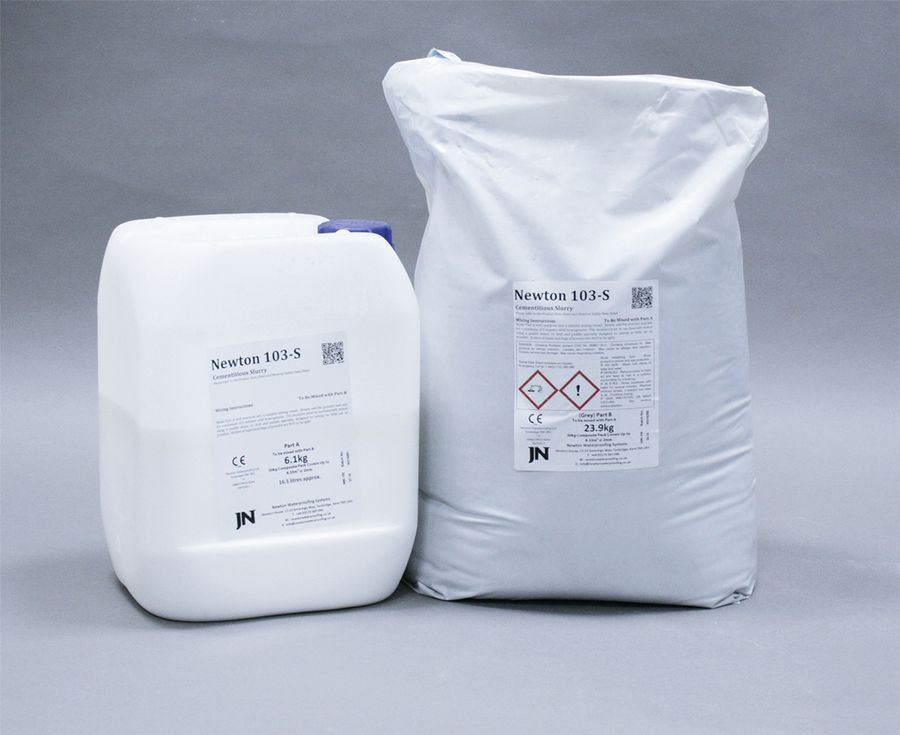
High-performance cementitious coating – HydroCoat 103 2K
Cementitious waterproofing membrane with high adhesion and an A2 fire rating that can be applied very quickly by airless spray. Well-suited for large-scale applications to reservoirs, water tanks, below ground structures, podium decks, balconies, and parking areas.
Cementitious waterproofing coating – HydroCoat Tanking Slurry
A single-component, mineral coating that is simple to mix and easy to apply both internally and externally. Unlike conventional slurries, it also includes advanced crystallising and capillary-blocking chemicals that enhance the bond of the coating to the substrate.
Cementitious waterproofing slurry and mortar – HydroCoat 105 1K
A single-component, polymer-modified, cement-based waterproofing slurry with extremely high adhesion and impermeable to up to 10 bar of water pressure both internally and externally. Highly versatile, and suitable as a mortar, a bag-rubbing mix, a surface repair product, a fairing coat/thin section bonded screed, and a waterproofing render.
Epoxy-cement waterproofing coating – Diasen WATstop
Fibre-reinforced cement/epoxy mortar suitable for surface repair and smoothing. Numerous applications include the damp proofing of walls and slabs and the waterproofing of concrete structures.
Crystalline waterproofing of concrete – HydroCoat 104 Super
Applied to the surface of concrete, HydroCoat 104 Super provides in-depth protection against the movement of moisture through the capillaries and hairline cracks. Large areas can be quickly treated, and the low application rate makes it a cost-effective option.
Externally Applied Membranes
Flexible and reinforced bitumen waterproofing coating – HydroBond 2K-Flex
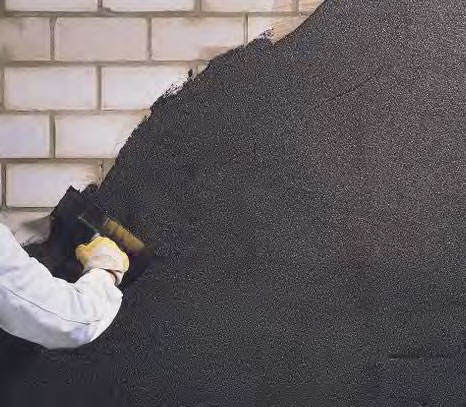
A radon gas certified, bitumen/rubber waterproofing membrane used primarily for the external waterproofing of earth-retaining structures such as basements and foundation walls. Forms a thick, highly flexible barrier to water that can also fill voids, cracks and joints.
Flexible construction joint waterproofing – FlexProof 106 System
Advanced, single-component liquid waterproofing material which forms a flexible membrane that is rainproof in minutes and capable of handling severe building movements. Suitable for waterproofing construction/movement joints to both vertical and horizontal surfaces
Externally and Internally Applied Membranes
Cementitious flexible waterproofing membrane – HydroCoat 107 Elastic 2K
Cementitious and flexible coating for the waterproofing and protection of concrete and masonry. Can be spray-applied so ideal for large projects. Suitable for the waterproofing of reservoirs, tunnels, water tanks, basements, podium decks, flat roofs and balconies.
How Can Newton Waterproofing Help You?
We are dedicated to providing high-quality waterproofing services throughout the UK, and our team of experienced professionals has the expertise to tackle even the most challenging projects. We adhere to industry standards and use proven methods, ensuring long-lasting results and peace of mind, so contact us today to get started.
Speak to our friendly, expert team
Our staff are able to provide guidance for projects of all sizes, whether you require some general advice about damp or waterproofing, or support with technical drawings and specifications.

